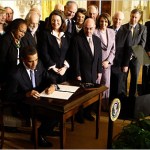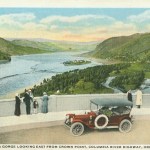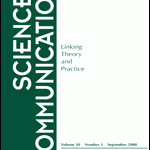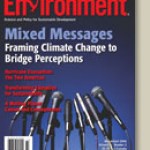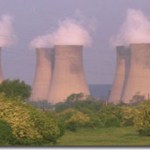
At the "three cultures summit" this past weekend in Oregon, I had the opportunity to meet Hank Green, creator of the immensely popular EcoGeek blog and YouTube auteur of the successful Vlogbrothers series.
Hank's creative work raises the question I posed at this blog last year. Specifically, on science and environment, is comedy and irony the new gateway to public engagement, especially among young audiences?
Consider, for example, that Hank's video above, a comedic and philosophical skit on the trade-offs in eating meat, has been commented on at YouTube more than 2800 times over the past…
The BiPartisan Policy Center has announced a Blue Ribbon panel that will issue recommendations intended to inform Obama's call for a Memorandum on Scientific Integrity.
Importantly, the panel will study and address an important theme that continues to re-occur in the so-called "science wars": what is the dividing line between where science ends and policymaking begins? Or as I blogged earlier today, what is the demarcation between the first and second premise in compelling policy action?
From the press release to the interim report issued today:
The report's premise is that "a critical goal…
This past weekend, a diversity of scholars and experts were called to Oregon for what might be described as a "three cultures summit" on climate change. The two-day deliberation included scientists, philosophers, poets, writers, social scientists, and filmmakers. Our focus, as Oregon State philosopher Kathleen Dean Moore defined it, was to figure out how to effectively communicate the "second premise on climate change," a set of moral and normative frameworks that can stir policymakers and the public to action.
An overwhelming majority of scientists have concluded that climate change is an…
Good news on the science beat front. Cristine Russell at the Columbia Journalism Review has the details on an innovative move by the Washington Post to consolidate coverage of science, the environment, and health under one editor.
At The Three Cultures Summit on Climate Change, What Scientists Want to Learn From Social Scientists
I'm spending the weekend in Oregon at an outpost on the edge of the Columbia River Valley. I'm in town for a unique three cultures summit on climate change, a workshop that brings together scientists, social scientists, philosophers, poets, and artists to discuss strategies and methods for public engagement and communication.
This afternoon we broke into separate disciplinary groups and embarked on a short hike to reflect on what we would like to learn from the other disciplines. When we returned, I jotted down the following notes on what scientists said they would most like to learn or…
I'm blogging from Chicago's O'Hare airport, on my way to Portland to participate in a unique summit bringing together philosophers, scientists, social scientists, poets, filmmakers, and artists to consider new strategies for shifting the popular zeitgeist on sustainability and climate change. The workshop is sponsored by the Spring Creek Project at Oregon State. I hope to have more to report later, but for now, participants are asked to consider the following questions.
For readers, how would you answer these questions?
MAIN QUESTION: Let's jump ahead to 2020 and imagine that, in just a…
At ClimateWire, one of the new innovative models for science journalism, Christa Marshall has a great feature on how language will shape the pending political battle over cap and trade legislation.
The syndicated story is picked up by NY Times.com and features insights from George Lakoff, Stanford's Jon Krosnick, various pollsters, and yours truly. Here's what I have to offer, emphasizing similar themes that I have written about at Framing Science and in various articles:
According to Matthew Nisbet, an assistant professor of communication at American University, the slew of phrases poses…
It's out today, U2's latest album, rock like only they can do it. Check it out from the recent Brit Awards.
Over the past decade, best-selling books such as Malcolm Gladwell's The Tipping Point have told compelling stories of how marketers and political consultants use "influentials," "mavens," "connectors," and "navigators" to sell products and win elections. In similar fashion, following the 2008 election, news articles proclaimed Barack Obama the first "online networking president" and speculated as to how Obama might be able to translate his millions of online campaign activists into a powerful governing force.
On climate change, with the 2006 release of An Inconvenient Truth, Al Gore…
In the U.S., there is often the false assumption that Europeans are somehow more engaged and supportive of science than Americans. Yet, as I discuss in several studies and as I have written about in articles, instead of science literacy, the same generalizable interaction between values, social identity, and media portrayals drive European perceptions of science debates. Indeed, cross-national survey studies show that while science remains the most widely admired and respected institution in American society, Europeans are far more ambivalent about the costs, risks, and benefits of science…
Last night in his State of the Union address, Obama asked Congress to send him a bill that caps carbon emissions, with the president framing the matter primarily in the context of economic recovery and energy innovation:
"But to truly transform our economy, protect our security, and save our planet from the ravages of climate change, we need to ultimately make clean, renewable energy the profitable kind of energy. So I ask this Congress to send me legislation that places a market-based cap on carbon pollution and drives the production of more renewable energy in America. And to support…
Back in January, Desmog blog noted what they dubbed a "troubling" trend online, plotting a rise in mentions of "global warming + hoax." The graph was construed as evidence of growing strength for the climate skeptic movement.
At the time I observed to a few colleagues that the graph probably also reflected the intense interest in so-called "denialism" among the liberal climate netroots. By constantly responding to and attacking the climate skeptics in blog posts and comments, liberal bloggers were only bringing additional attention to their claims.
The same observation currently applies to…
Shankar Vendantam's story headlined "Climate Fears Are Driving 'Ecomigration' Across the Globe" runs on the front page at the Washington Post today. It's not often that climate change is a front-pager at the NY Times or the WPost, making it important to understand the types of narratives that prompt editors to give the issue top attention.
For example, in January 2006, Andrew Revkin's report that NASA political appointees were blocking James Hansen's ability to make public statements ran as the lead story of the Sunday NY Times. For Times' editors, who earned their stripes covering politics…
Not surprisingly, Carl Safina's Feb. 10 essay at the NY Times calling for an end to Darwin worship generated a fair amount of criticism.
Safina's suggestion to frame information in terms of the nature and benefits of evolutionary science rather than the more traditional "great man of science" narrative is a sound one. In fact, it's the exact strategy that the National Academies used in last year's educational backgrounder on evolution. In the Academies report, Darwin is mentioned only a few times, same thing with the Galapagos (for more on the framing and structure of the report, see this…
A new study at the journal Risk Analysis examines the factors shaping public perceptions of nuclear energy and provides important clues about how to effectively mobilize public support for expanded investment in the technology. (See end of post.)
The study analyzes data from 1997, but the relative stability in public attitudes about nuclear energy and the strong measurement in the study of core constructs such as risk perceptions, environmental values, and nuclear attitudes make the findings still relevant.
Not surprisingly, according to the analysis, basic value orientations--including…
Just how important is public communication? Presidential Science Adviser John Holdren believes that scientists should devote 10% of their time to talking to the public about matters of science and policy, especially in the area of energy and climate. That's what he urged in the conclusion to his 2007 AAAS Presidential address and again last year at the energy summit sponsored by the National Academies. From the report to that summit:
"I suggested in my AAAS presidential address last year that everybody in the science and technology community who cares about the future of the world should be…
There's a must read Shorenstein Center white paper out by Time magazine contributor Eric Pooley, who spent Fall 2008 at Harvard researching how the news media covered the run up to the vote on the Lieberman-Warner Climate Security Act (paper, press release, Slate commentary).
Note Pooley's conclusion about the new false balance in news coverage of climate change:
Pooley concluded that the press misrepresented the economic debate over carbon cap and trade, failed to perform the basic service of making climate policy and its economic impact understandable to the reader, and allowed opponents…
Sometimes I just don't get it. Whether it is climate change, evolution, or vaccination, the more literal minded among science bloggers and pundits typically blame science journalists for breakdowns in public communication.
Yet as I discuss in a forthcoming article at Skeptical Inquirer magazine, constantly blaming the media messenger deflects attention away from the fact that scientists and experts themselves make mistakes when it comes to public engagement (or that literal minded bloggers create more heat than understanding). As I often like to point out in talks, research shows that…
The Obama administration had a rough start to its communication strategy on the stimulus plan, going from no message to a catastrophe frame, only at the last minute shifting to a more effective focus on localized benefits and impacts. If the Stimulus plan was a tough challenge to communicate, framing its success will be even tougher. Measuring impacts will be complex and uncertain, their interpretation will be ideologically driven, and a wide range of groups will be actively working to define its success or failure, including journalists.
At New York magazine, John Heilemann offers an apt…
For more than a decade, Rick Weiss covered science (and its politics) for the Washington Post. When he left the paper last year, the news organization lost one of the top two or three science journalists in the business and perhaps the very best at covering the intersections of biomedical research and policy.
Weiss now serves as a fellow at the Center for American Progress, contributing articles to the think tank's Science Progress site. In today's Washington Post, Weiss pens a guest op-ed weighing in on the continued culture war over evolution.
While Darwin himself never took his findings as…
